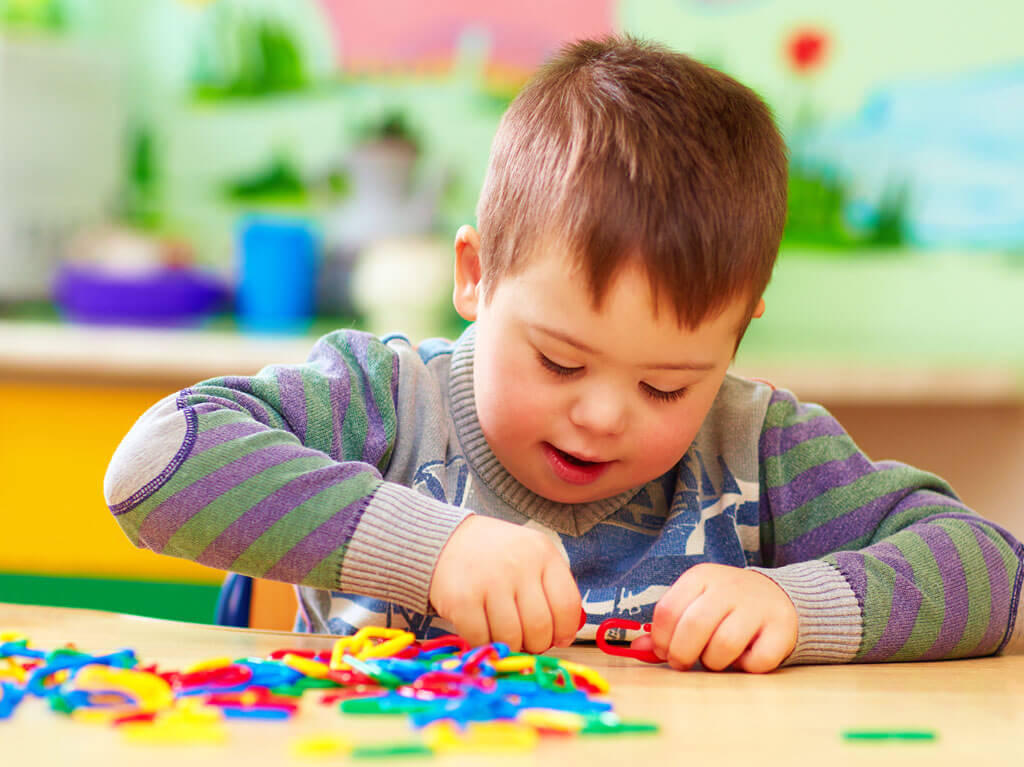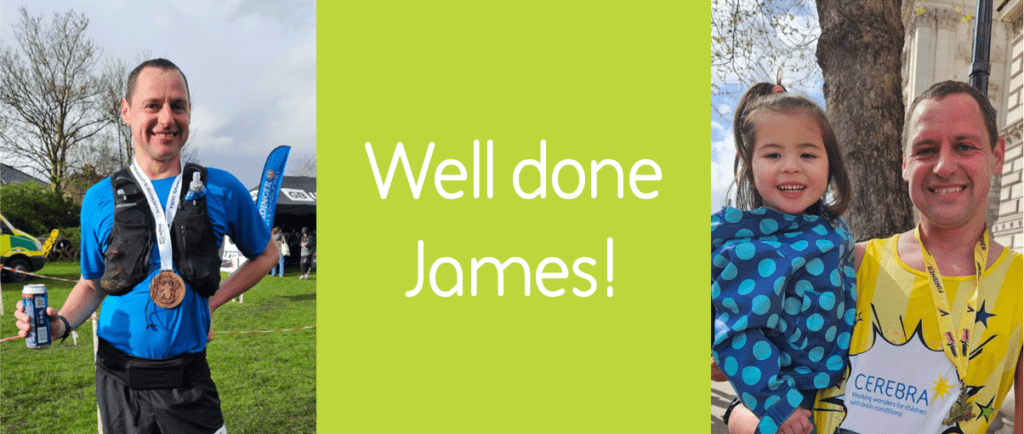Razwana Mushtaq, whose 5 year old daughter has autism, discusses her experience of getting a diagnosis for her daughter, recent research on early intervention and what it is like running an Applied Behavioural Analysis (ABA) programme, with the support of UK Young Autism Project (UKYAP)
Background
As parents we want our kids to be happy and independent. We need to support them in order to reach their full potential. As a parent myself, I would do whatever it takes to give my children the best possible. I have four children and do not treat my youngest child, who is five years old now, any different to my other children just because she has autism. I have the same dreams and hopes for her future.
She was delayed in all areas of her development from a very young age and was a very quiet baby. On her first birthday I saw my little girl was enjoying her day, however, over the next twelve months everything changed; her behaviour became different, she started to chew and eat everything in her reach, which could be paper bags, beads, etc. She did not like to be with others as she just would run around and flap her hands, she didn’t make eye contact or respond to her name, she had no language and I didn’t know what to do to get her to sit or play.
She finally got a hearing test at the age of two, which she passed, but the consultant told me to get a referral to a specialist as she was delayed in all areas of her development. I visited my GP to make a referral for further assessments, then things started to move forward at the slowest pace possible and her behaviour was not improving. In the mean time I had a child with difficult behaviours and sleep issues which I didn’t know how to manage. To feel such helplessness without any support, life was as difficult as could be.
We waited for over 9 months for a professional assessment, and in January 2015, a day before her 3rd birthday we finally got a 3 day assessment. It was such a long process, mostly of waiting for appointments with nothing to offer in-between. I felt it was a waste of time that could have been spent on supporting us both in some way. To have the diagnosis of autism confirmed was upsetting indeed, even though I was very much expecting it. But to know your child has disability for life was painful and I felt helpless. I was left not just to deal with her difficulties and behaviours but also without a clue on how to manage all of this. Not one professional mentioned early intervention or anything else to support us. At this point I was losing all hope; I was mentally and physically tired from running after her all day, trying to stop her from eating inedible items and hardly sleeping at night. My other children were all affected and us as a family.
Discovering Applied Behavioural Analysis (ABA)
Following the lack of professional support we received, I knew I had to take control of the matter and do something myself. I began to do my own research into autism and how it could be treated. After spending few hours I came across early intensive behavioural intervention (EIBI) and Applied Behavioural Analysis (ABA). ABA comprises specific teaching methods developed through extensive research and involves teaching in a systematic manner by breaking down tasks. Intervention is structured so that appropriate behaviours such as play, language and socialisation are maximised through prompting and positive reinforcement.
In a blog by Professor Richard Hastings, ABA for children with autism is described as ‘a values-driven, child-centred, developmentally-informed, evidence-based, effective use of principles of learning to help children with autism achieve their full potential.’ (1)
I decided to start an early intervention programme as soon as possible with my daughter, as she had lost so much time already. Recent research has shown significant gains from early behavioural intervention on children’s early skills (cognitive skills, joint attention, play and stereotypic behaviour), with the greatest gains seen in the children who entered treatment prior to their second birthday. (2)
When my daughter was three, we started the UCLA Young Autism Project model of ABA founded by Dr Lovass (3) as it was a dynamic model and tailored to the needs of the child, while relying on behavioural principles and supported by extensive research (4 ). The programme is specifically focussed on my daughter’s speech and language, communication, play, social and self-help skills.
The only providers in the UK I could find were UK Young Autism Project (UKYAP), who offer ABA trained consultants to design a personalised ABA intervention for the child and give face-to-face supervision and support to help parents and/or tutors implement the programme. The UKYAP consultant made visits every 2 weeks, as my daughter’s needs and the teaching methods used needed to be reviewed often as well as regular evaluation of progress. The programme required at least 35 hours of teaching per week and is best to be done in a homebased setting to begin with. Through this type of early intervention, UK Young Autism Project report that ‘a sizable minority of children have been able to achieve normal educational and intellectual functioning by seven years of age. For those that do not achieve typical levels of functioning, significant improvements in language and other important skills have been achieved, while inappropriate behaviours decreased’ (5 ).
I thought this was totally amazing as some of these children wouldn’t otherwise be able to reach such goals.
I soon found out that this intervention was not cheap. I couldn’t afford to hire tutors so I decided that I would do some of the hours myself and try to get volunteers from the Psychology Department at the local University, which I manged to do. Parental commitment is needed as consistent teaching is important and to follow through and generalise the skills into daily life. My daughter’s programme is now funded by The Giving Tree Foundation for a year and we have weekly visits from the UKYAP consultant and the tutors are provided by UKYAP. This has taken her ABA programme to the next level, with consistent teaching that is much more effective for her learning and huge support for myself.
The progress we saw following ABA
My life changed as I managed my daughter’s ABA programme, liaising with tutors and working towards her targets, but within a week of starting the programme she was sleeping better and she was matching items within a few days. Imitation was the biggest gain I feel she made in the early days of the programme. This was a little girl who couldn’t copy others but now she looks and tries to copy those around her. Each task had to be repeated several times a day and tasks were broken down to help her understand them. The reinforcement used motivated her and any prompts given were faded out. Each day she spent learning at a pace suited to her and we felt the methods were very effective.
She is now catching up on some of her delayed skills including gross motor, fine motor, imitation, some play skills, matching colours, shapes and so much more. She is learning to read and write. She can dress and undress herself. Her eating issues have been resolved and she is now toilet trained. She can sit nicely and do a 20 piece puzzle independently with an adult giving her praise to continue. She has made amazing progress in 2 years. She is beginning to say words and is able to express her needs through PECS and now tries to interact with others, she smiles back and responds to every call of name. We get to see those beautiful eyes staring right at us. All of these are priceless to us, I never thought this would be possible in such short time.
What I learned from my journey is that if you want your child do well in life, you have to take control of the matter yourself. The system does not seem to be offering early intensive behavioural intervention (EIBI) for every child that might benefit from it, when there is clear evidence that it is key from a young age. I strongly believe we need invest into their future now and not in 20 years when billions will need to be spent on the many young adults with autism that will need significant support.
I have struggled in running my daughter’s ABA programme, it has been the biggest challenge of my life but I was not going to let her down and prevent her from having the best education possible. If you find yourself in the same position as me and feel unsupported, I recommend doing some research yourself to find out about evidence based interventions like EIBI.
©Razwana Mushtaq 2017, writing as a parent contributor for the Family Research Ambassadors Project run by the Centre for Education, Development and Research (CEDAR), at the University of Warwick and Cerebra.
References
1 Hastings, R.P. (2012) What is ABA for children with autism? Prof Hastings’ blog. Available online http://profhastings.blogspot.co.uk/2012/12/autism-evidence-3-what-is-aba-for.html [Accessed 01 August 2017]
2 MacDonald, R., Parry-Cruwys, D., Dupere, S., Ahearn, W. (2014) Assessing progress and outcome of early behavioural intervention for toddlers with autism. Research in Developmental Disabilities 35, 3632–3644
3 Lovaas, O. I. (1987) Behavioral treatment and normal educational and intellectual functioning in young autistic children. Journal of Consulting and Clinical Psychology, 55, 3-9.
4 Eldevik, S., Hastings, R.P., Hughes, J.C., Jahr, E., Eikeseth, S., & Cross, S. (2009) Meta-analysis of Early Intensive Behavioral Intervention for children with autism. Journal of Clinical Child & Adolescent Psychology, 38, 439-450.
5 UK Young Autism Project (2009) Our commitment to providing the most effective treatment for autism [Accessed 01 August 2017]







